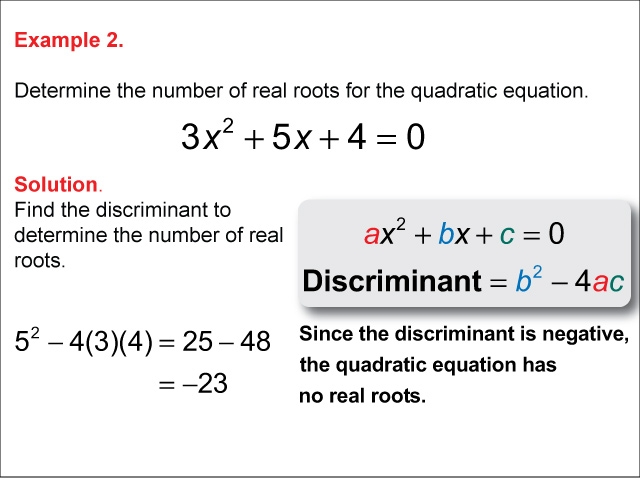
Display Title
Math Example--Quadratics--Calculating the Discriminant: Example 2
Display Title
Math Example--Quadratics--Calculating the Discriminant: Example 2
Calculating the Discriminant: Example 2

Topic
Quadratics
Description
This example illustrates the application of the discriminant in determining the nature of solutions for quadratic equations. By evaluating b2 − 4ac, students can predict whether the quadratic equation has two distinct real roots, one real root, or two complex roots. In this example there are no real roots. This understanding is pivotal for solving quadratic equations and interpreting their graphs. The skills involved include identifying quadratic coefficients, performing calculations, and analyzing results. This example enhances algebraic proficiency and conceptual understanding of quadratic functions. For a complete collection of math examples related to Quadratics click on this link: Math Examples: Quadratics Collection.
| Common Core Standards | CCSS.MATH.CONTENT.8.EE.A.2, CCSS.MATH.CONTENT.HSA.REI.B.4.B |
|---|---|
| Grade Range | 9 - 12 |
| Curriculum Nodes |
Algebra • Quadratic Functions and Equations • Quadratic Formula |
| Copyright Year | 2014 |
| Keywords | quadratic equations, solving equations, solving quadratic equations, the discriminant, discriminant, quadratic formula |